- Altered cerebellar and cortical structures in autistic children are related and may give rise to changes in functional connectivity with maturation. Spectrum has previously reported on cerebellum size and neurodevelopmental conditions. Molecular Psychiatry
- Mice with diminished expression of the autism-linked gene SYNGAP1 in forebrain GABAergic interneurons show altered neural activity and social behaviors. Journal of Neuroscience
- People with autism or schizophrenia have altered AMPA glutamate receptor density, according to a brain imaging study. Molecular Psychiatry
Cerebellum structure; AMPA receptors; MAGEL2 gene
Here is a roundup of autism-related news and research spotted around the web for the week of 28 October.
By
Jill Adams
29 October 2024 | 1 min read
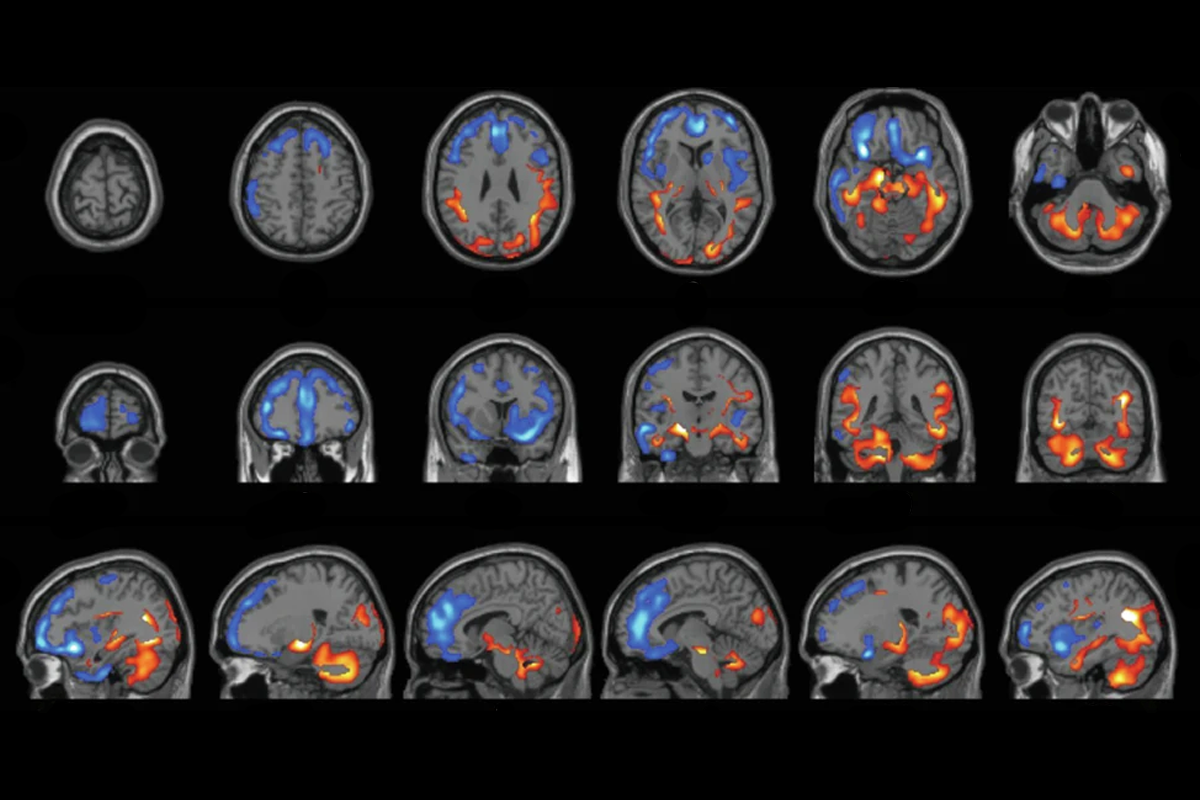
Amped up: The density of AMPA glutamate receptors is higher (red) in some brain areas in autistic people, and lower (blue) in others, compared with non-autistic people.
- Nearly all excitatory neurons in human cortical organoids are produced indirectly from intermediate progenitor cells. Cell Reports
- Autistic people’s brain regions show an altered maturation pattern, which appears to be tied to clinical traits. JAMA Psychiatry
- Mice missing the gene MAGEL2, a model of Prader-Willi syndrome, have heightened somatostatin activity in the lateral septum and altered sociability that can be mitigated by oxytocin and vasopressin. Cell Reports Medicine
tags:
Recommended reading
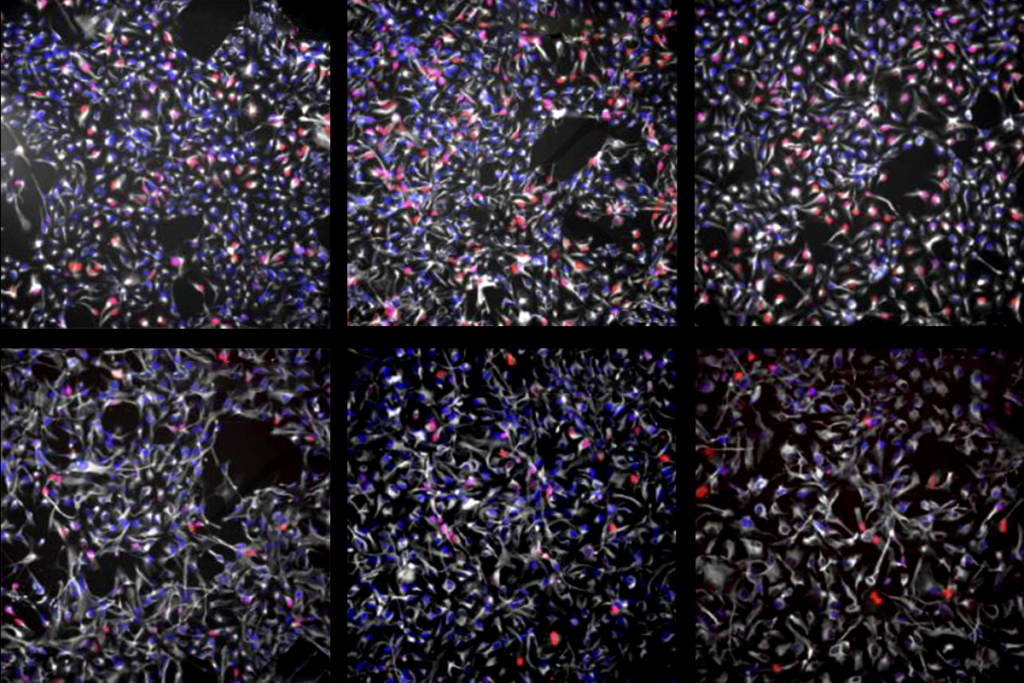
Dosage of X or Y chromosome relates to distinct outcomes; and more
By
Daisy Yuhas
24 June 2025 | 2 min read
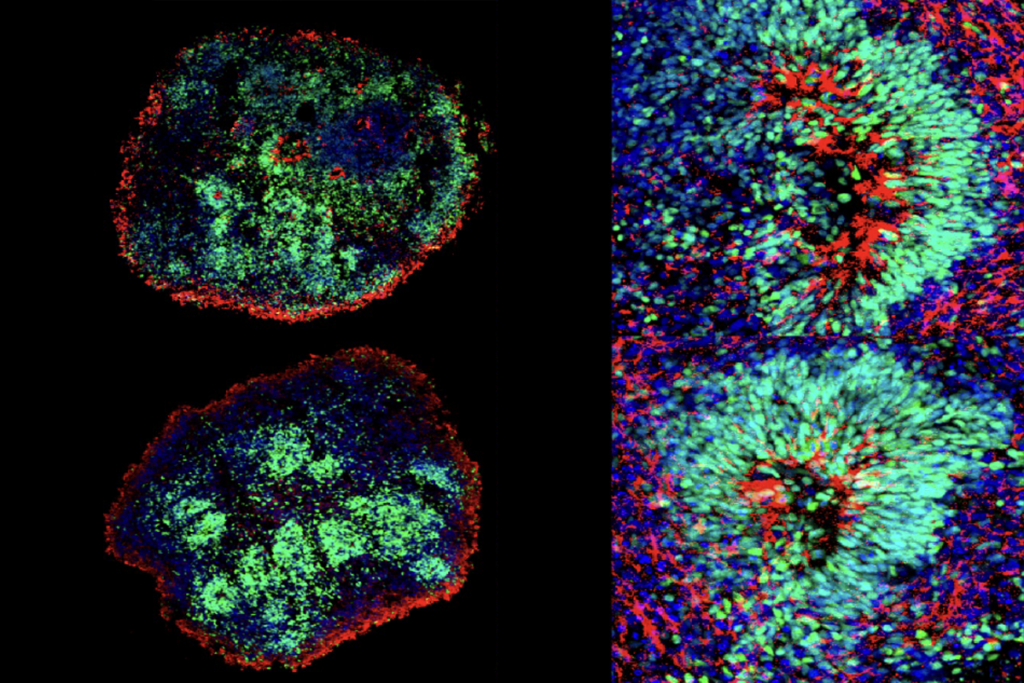
Altered visual processing in a mouse model of fragile X syndrome; and more
By
Jill Adams
17 June 2025 | 2 min read
Explore more from The Transmitter
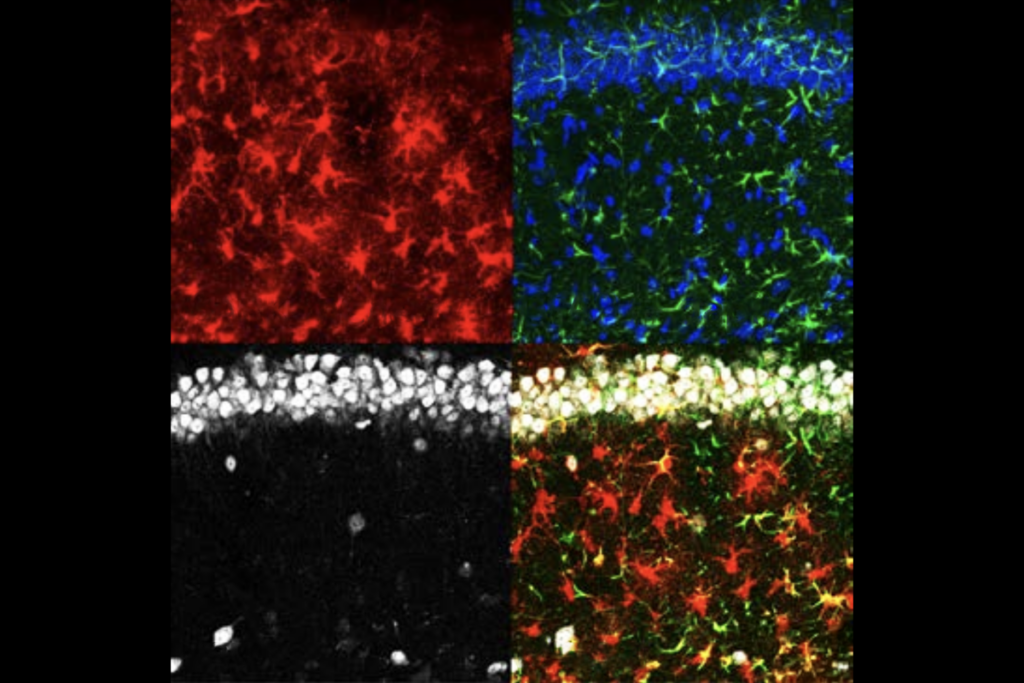
Astrocytes sense neuromodulators to orchestrate neuronal activity and shape behavior
By
Claudia López Lloreda
27 June 2025 | 9 min listen
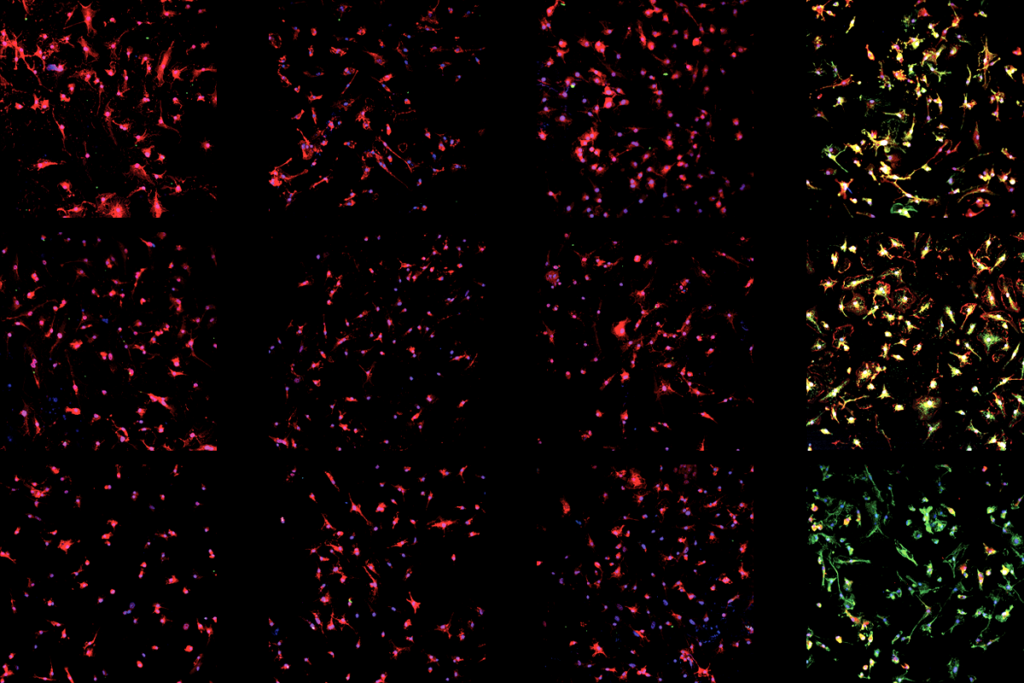
Authors correct image errors in Neuron paper that challenged microglia-to-neuron conversion
By
Shaena Montanari
26 June 2025 | 3 min read
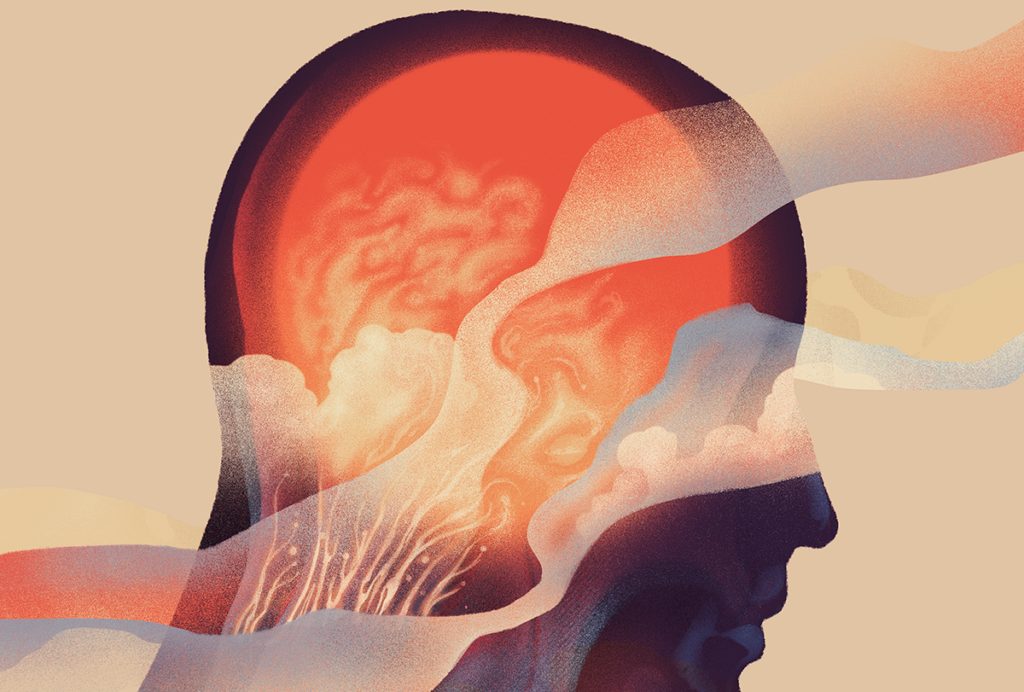
Building a climate neuroscience subfield: Q&A with Angie Michaiel
By
Calli McMurray
26 June 2025 | 5 min read
Cite this article:
